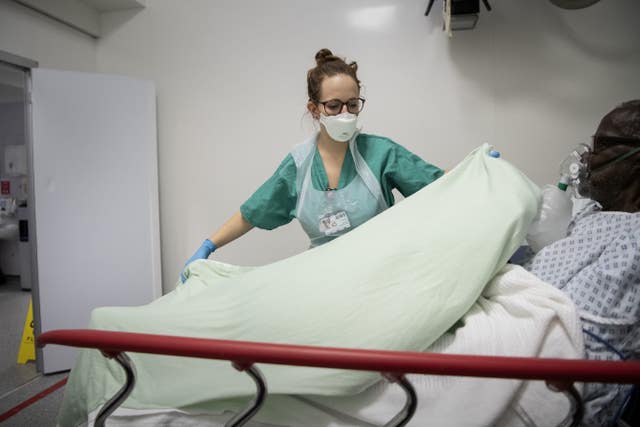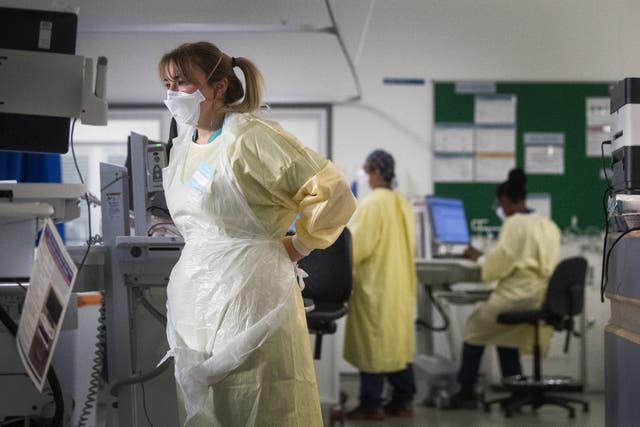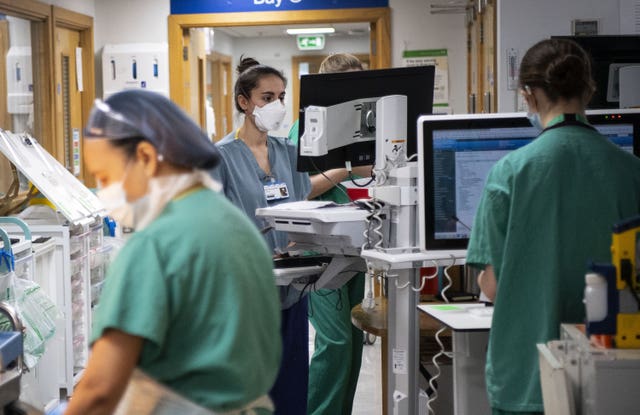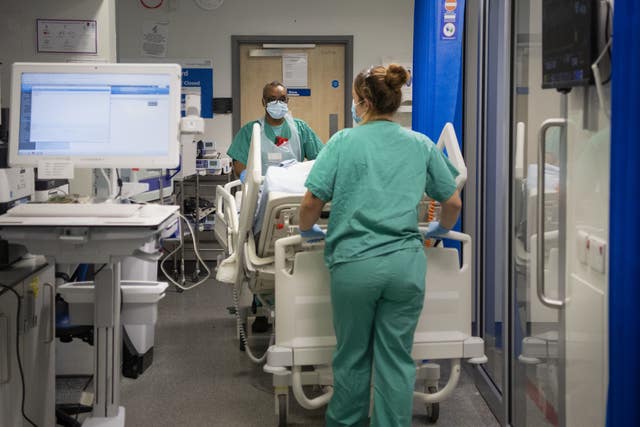Hospital staff on the coronavirus frontline have described how there is “very little joy” in the job during the second wave, with some in intensive care units resigning and managers concerned over the long-term mental health impact on employees.
Tori Cooper, head of nursing in the Emergency Department at St George’s Hospital in Tooting, south-west London, said the usually good staff morale had been chipped away during the Covid-19 pandemic.
Cooper told the PA news agency: “There is very little joy in our work at the moment.
“It’s hard to find that joy when you come into work – you’re scared for your colleagues, your families and yourself.”

She said some staff have had to be sent home to take time off due to the unprecedented pressures on the job, while others have battled on despite not being able to see family abroad for nearly a year.
And Cooper said she was concerned about the coronavirus legacy on staff in the Emergency Department.
“There’s only so much you can come in and see an unprecedented number of healthy people die before that affects you,” she said.
“There is going to be an impact on mental health for a long time for our staff.
“We’re quite resilient and adaptable, that’s part of being in the Emergency Department, that’s what we love.
“But this is going to have a sustained impact on staff and that’s what worries me because I can’t see how we’re going to help that, because it is an impact that can’t be seen in someone but it is very much felt.”

Intensive care consultant Mohamed Ahmed said he had seen staff in tears at the end of their shift, while some decided they could no longer come to work.
Dr Ahmed, 40, said: “After the first wave, we had quite a lot of staff who resigned.
“They couldn’t cope. We had nurses who had all their family members abroad and of course they couldn’t see them, so they couldn’t get that support. It was extremely difficult.
“We have had a lot of sickness, so we’ve had situations where very good nurses are having to work on behalf of all of those who are unable to come in – it’s one of these situations you never want to put your staff in.”
Asked how much more staff could tolerate, Dr Ahmed said: “The wiggle room, as you say, has been stretched so much.
“However, predominantly we’re programmed in such a way as to deal with anything. But it would stretch us beyond our limit.”

His intensive care colleague, matron Lindsey Izard, described how staff were “really on the edge, they’re exhausted and they’re getting Covid themselves”.
And Omome Etomi, a medical registrar on the hospital’s Acute Medicine Unit, said she was “shattered”.
Dr Etomi, 28, said: “I think psychologically more than anything, it’s been months and months of this.
“Even in between waves, we never really went back to normal.
“For us it’s been a really long few months. It’s challenging.”

Emergency department consultant Mark Haden paid tribute to the staff for stepping up to the challenge.
Dr Haden, 36, said: “We make it look like business as usual but it’s very much not – it’s very different to our usual pattern of work.
“Everyone’s stress levels are higher than usual. Everyone is working to the limit, to the threshold of what they’re able to.
“It is stretching us and we are having to find new ways of working in order to look after our patients.
“We will always find ways to cope – I have every faith that everyone in this trust will step up.”
















